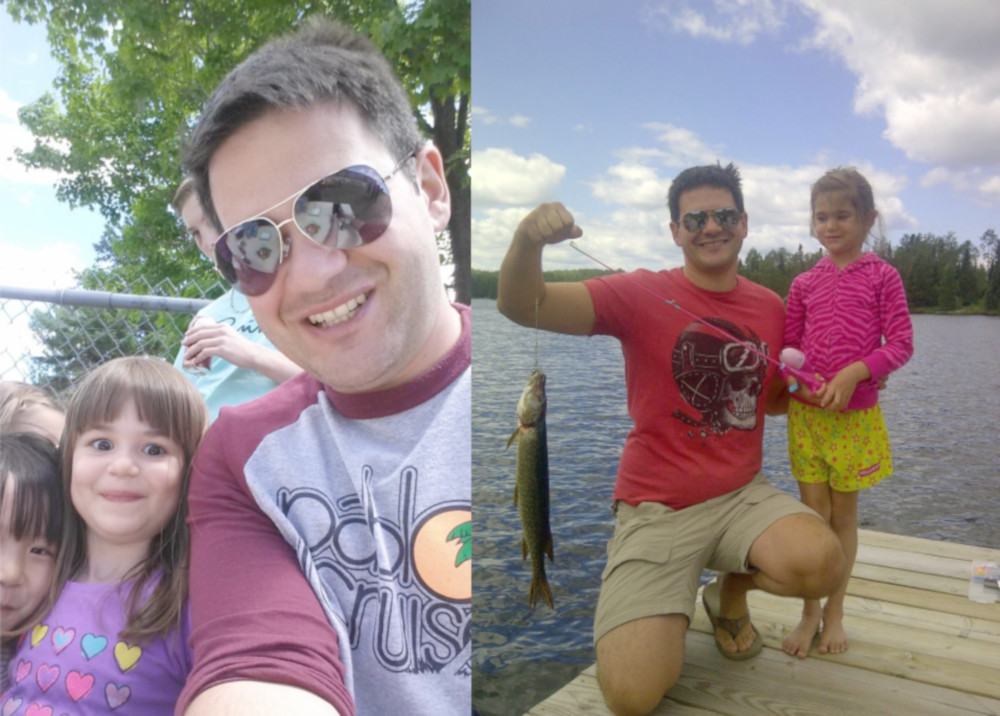Firefighting Trailblazer Stephanie Drost
Monday, September 3, 2018 /
Thunder Bay firefighter Stephanie Drost never lets the grass grow under her feet. “Even as a kid, I was very active,” she says. “I was a competitive cross-country skier from the age of seven.” Stephanie competed provincially and nationally and then as a member of Lakehead University’s cross-country ski team. She combined her studies in kinesiology, and later business, with a gruelling race schedule.
It all came to a sudden halt in her second year. The intensive training caused nerve damage to Stephanie’s elbow (she’d broken it in a childhood trampoline accident and it had never fully healed) that required surgery followed by a long recovery period. This setback wasn’t the devastating blow it might have been to another athlete. “It was a blessing in disguise,” Stephanie says. “The injury led me to firefighting by giving me the time to pursue other things.”

At the encouragement of friends working for the Ministry of Natural Resources and Forestry, she got a job as a forest firefighter in Dryden, Ontario, and began spending her summer breaks battling wildfires. After her third year at Lakehead, though, Stephanie was still searching for the right path to take. By chance, she heard about a three-month structural firefighting course offered by Texas A&M University.
It seemed like fate when she returned from Texas with her certification in April 2015 and discovered that the City of Thunder Bay Fire Department (TBFD) was hiring. Stephanie passed the written TBFD test and began preparing for the physical test – which is the same for male and female candidates and one of the most demanding in the country. “The toughest part for me was the stair challenge,” Stephanie says. It required her to wear ankle weights and a 50-pound vest while running up and down three storeys, three times in a row, carrying a weighted 85-pound hose.
Stephanie passed the physical test with flying colours and so did Ceilidh Boyd, a forest firefighter she’d met while working in Dryden. In 2016, the two women became the first female firefighters ever hired by the City of Thunder Bay.
“I was really fortunate to go through training with Ceilidh,” Stephanie says. “The guys were very welcoming but it’s intimidating anytime you start something unknown, so it was good to start with a friend.”
Stephanie hasn’t looked back since joining the Thunder Bay Fire Department. “I’ve never felt like I was so much in the right spot before. I love the different situations firefighting throws you in and the adrenaline rush it gives you. When people think about firefighters, they think about fires and rescuing cats, but we literally go to everything – car accidents, medical calls, fires, public assists.”
She also enjoys working with police officers and paramedics. “We all come together to help someone in trouble. I see people on their worst days. Knowing that you can help them – even if you’re just comforting them – is so rewarding.”
Even when she’s not firefighting, Stephanie doesn’t slow down. She and two friends opened a strength and conditioning gym called Industrial Athletics in 2017. It’s been so popular that they had to expand a few months after it launched.
Despite Stephanie’s innate grit and resolve, she says she couldn’t have gotten to where she is without her parents. “My mom and dad are very supportive. When I told them I wanted to be a firefighter, they didn’t question my decision. They just said, ‘Go for it Steph.’”
Photo credit: Della Robbins












